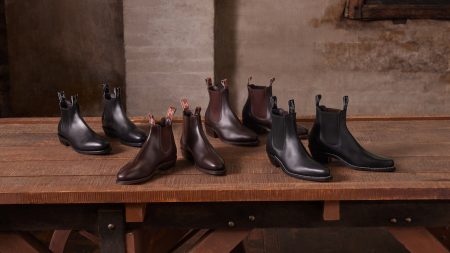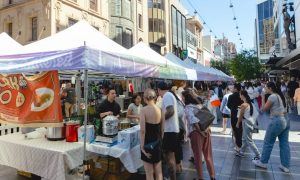As South Australia and the rest of the country continue to see a documented rise in COVID-19 cases, it’s time to get prepared to take care of yourselves and your household members.
With the Omicron variant more transmissible than the COVID-19 strains previously seen, the likelihood of catching the virus has increased. As Australia continues to see a rapid rise in cases, it’s best to sort out your at-home isolation kit, just in case the virus enters your home.
Further, it is also best to wrap your head around what to do if you do become sick, and what resources are available to you.
“As we continue to see a rise in COVID-19 cases in SA, it’s best to be prepared in case the virus enters your home,” says physician Dr Sarala Divakaran.
“Being prepared is a great way to stop the spread within your home, and stop your loved ones or housemates also getting sick.”
Having these kits ready to go is the best way to stay ahead of feeling sick or catching COVID-19 – that and practising good hygiene and social distancing. In cases like this, it pays to be prepared.
Finding a suitable place:
If sharing with housemates, loved ones and family members, it’s best to seek out a place in your home that will best house those infected with COVID-19.
It is recommended you find a room that is not directly near any common areas, such as the kitchen or living room, and is near a separate bathroom (if possible). Do this before any household member becomes infected with COVID-19, it could just be a quick conversation, but it is best to be prepared to ensure others can isolate adequately.
Make a COVID kit:
Being prepared is the best way to stay ahead of the game, and making a COVID-19 kit will help with that.
Dr Divakaran says worthy items to include in your COVID kit are a thermometer, medical-grade face masks, hand soap and gloves, sanitiser and disinfectant. It is also ideal to have rapid antigen tests within your home for each family member.
The Australian Government Department of Health has listed other useful items to have on hand, which includes tissues, pain relief like paracetamol and ibuprofen, and electrolytes. Further, if you can get your hands one, a pulse oximeter is handy to have at home to monitor symptoms.
As supermarkets across the nation continue to see shortages in products, it is imperative that we don’t overstock our homes. Make sure you only take what you need to ensure there’s plenty for others.
Groceries:
While you may be able to visit the shops right now, if you or a household member test positive to COVID-19, getting groceries may prove to be difficult. By having one to two weeks worth of food ready to go, either in your freezer, pantry or fresh in the fridge, you’ll be set to stay fed when the tiredness hits.
Check out our guide to heat and eat options in Adelaide here, which details restaurants, catering services and greengrocers delivering to your door or selling take-home packs for you to chow down on while sitting on the couch.
Otherwise, ask your friends or family members to help out during this time by dropping off food and essential items at your front door.
Waiting for a result:
Think you might have caught COVID-19? While waiting for your results, it is important to isolate yourself from those within your household and practise good hygiene until a negative result is reported.
The virus is reportedly most transmissible in the early days of infection, and by isolating early while waiting for results (as necessitated by SA Health), you can help stop the spread.
Tested positive, now what?
If you’ve tested positive, you must self-isolate from others to the best of your ability. In South Australia, individuals who are COVID-positive must isolate for ten days unless otherwise advised by SA Health. After you test positive, SA Health will also contact you about your infection.
The door to your room must remain closed. If leaving your space (e.g. going to the bathroom), avoid touching any shared household items and mask up and sanitise. If possible, do not enter any communal household areas and get your food delivered to your door. You are allowed to have the windows open, but the doors must remain closed at all times.
If you are fleeing domestic or family violence, you are allowed to leave your home to seek refuge if infected with COVID-19.
Confused, worried or stressed about how to care for yourself if sick with COVID-19? Call SA’s COVID-19 Response Care Team on 1800 272 872 or the National Coronavirus Helpline on 1800 020 080.
Monitor your Symptoms:
It is imperative throughout the infection that your monitor your symptoms of COVID-19 in case they worsen and medical help is needed. Even if you are presenting as an asymptomatic case or showing mild to moderate symptoms, it is still necessary to self-monitor.
If you have mild to moderate symptoms, you can be cared for at home, which allows you to be with all your creature comforts and personal items. Here you could also engage in Community (Home) Based Care delivered by SA’s COVID-19 Response Team and provided virtually.
It is normal to feel unwell if you catch COVID-19. SA Health states that you may experience a sore throat, runny nose, a headache, fatigue and a fever, with symptoms usually at their worst between days 5 and 7. Common symptoms also include loss of taste and smell, diarrhoea, muscle aches and loss of appetite.
SA Health states that if you are having trouble breathing, experiencing extreme dizziness, chest pain, and/or headaches to call Triple Zero (000) and ask for an ambulance.
You must tell the staff straight away that you have COVID-19 so they can take proper safety precautions and provide proper care. You will not be charged for the ambulance.
Health Support:
While feeling sick is never great, there are ways in which you can help ease your symptoms and help your recovery from COVID-19, according to SA Health.
By drinking plenty of fluids and eating a balanced diet, you’re already helping your body fight the infection. Remember to rest, take pain relief like paracetamol (as prescribed), sip on honey and lemon water and use throat lozenges if needed.
If your temperature spikes, SA Health also says you can manage a fever by applying a cool/damp cloth to your forehead, dressing lightly (even if you have the chills) and resting.
While you may not feel hungry as a side effect of COVID-19, it is important to stay nourished and hydrated – so try taking small sips of water and eating small amounts of food.
Sleep is also crucial in helping your body rest and recover from COVID-19, however, too much sleep may worsen your fatigue.
Reaching the recommended eight hours and resting when necessary will help you manage your fatigue symptoms. Having trouble falling asleep? Switch off your screens and distract your mind with peaceful thoughts to help yourself drift off to sleep.
Wellbeing Support:
Being isolated and sick is a combination that may see your stress and anxiety levels to rise.
Looking after your mental health while self-isolating is just as important as taking care of your physical symptoms. To help your mind and mental space, try and stick to a daily routine during isolation and don’t hesitate to reach out to those you trust about how you feel.
You can also call the SA COVID-19 Mental Health Support Line on 1800 632 753 or use their online chat from 8am until 8pm every day, including public holidays.
The SA Government also has the Open Your World website, a portal that homes valuable wellbeing resources, tools and tips for keeping your headspace healthy and helping you feel connected.
There is a range of mental health resources you can use during this time that operate 24 hours a day, seven days a week, Australia wide. These include:
- Lifeline: 131 114
- Beyond Blue Coronavirus Mental Wellbeing Support Service: 1800 512 348
- Kids Helpline: 1800 551 800
- Translating and Interpretation service: 131 450
- Suicide Black Call Service: 1300 659 467
The Women’s and Children’s Parent Hotline also provides support and telephone information to parents and children under 12.
Staying Entertained:
While COVID-19 may put a pause on you seeing family and friends, there’s still plenty of ways to remain entertained during this time. From Netflix and Chill to doing yin yoga sessions in your room, you can keep your mind at rest through an array of activities.
Pour over that book that’s been sitting on your bedside table for a while, re-organise your room (if you’re feeling up to it), or hit up the City of Adelaide virtual library and choose from the array of movies, e-books, video games and television series.
If fatigue sets in, there’s plenty of time to catch up on the latest movie or tv series streaming on your favourite platform. Find it hard to pick? Check out Glam Adelaide’s top picks of movie and television releases in 2021 or our favourite lockdown films.
Organise your mates for a virtual zoom catch-up and reach out to people you trust if your headspace starts to feel anxious, lonely or stressed.
If you’re making a COVID kit, it may also be worthwhile grabbing some fun activities to do while isolating – these could be paints and paper, puzzles or the latest video game you’ve been eyeing off.
If you have any COVID-19 symptoms, no matter how mild, please seek testing as soon as possible.
Find your nearest testing site at www.sahealth.sa.gov.au/COVIDtesting.
More information is available at www.sahealth.sa.gov.au/COVIDcontacttracing.
For more information visit https://www.covid-19.sa.gov.au/ or call the SA COVID-19 Information Line on 1800 253 787





















